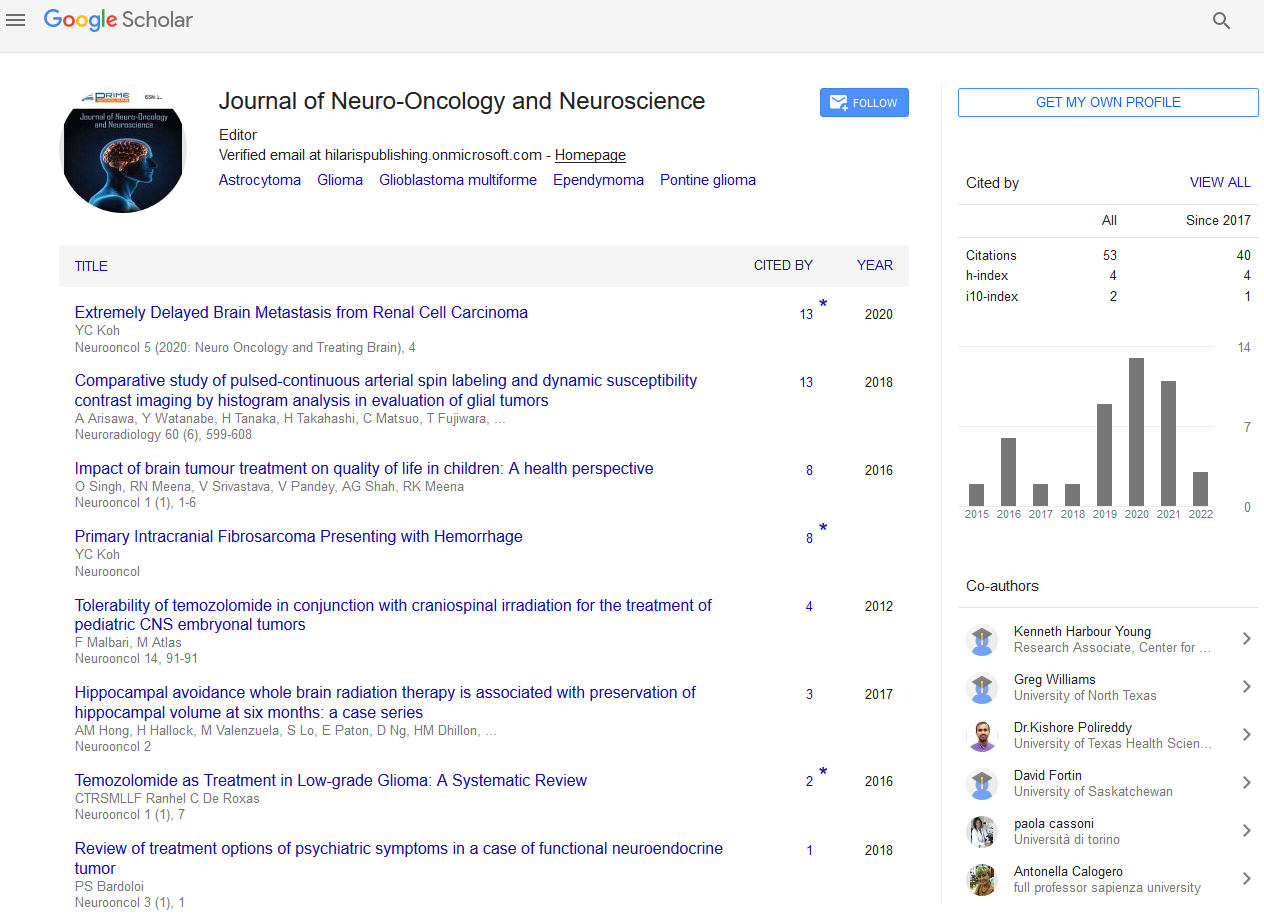Perspective - (2023) Volume 8, Issue 1
Encephalitis is a Serious Condition that can be Fatal or Cause Persistent Issues
Yongbo Zhao*
Department of Neuro Science, Xidian University, China
*Correspondence:
Yongbo Zhao,
Department of Neuro Science, Xidian University,
China,
Email:
Received: 02-Jan-2023, Manuscript No. IPJNO-23-15666;
Editor assigned: 04-Jan-2023, Pre QC No. IPJNO-23-15666 (PQ);
Reviewed: 18-Jan-2023, QC No. IPJNO-23-15666;
Revised: 23-Jan-2023, Manuscript No. IPJNO-23-15666 (R);
Published:
30-Jan-2023, DOI: 10.21767/2572-0376.23.8.005
INTRODUCTION
Brain inflammation is known as encephalitis. Viral infection, autoimmune
inflammation, bacterial infection, insect bites, and
other factors are among the causes. There may be no known
cause at all. The most common cause of encephalitis is a virus,
such as the varicella zoster virus, which causes chickenpox and
shingles, or herpes simplex viruses, which cause cold sores.
Even though recovery from encephalitis can take a long time
and be frustrating, some people eventually recover completely.
Damage to the brain leaves many people with long-term problems
and never fully recover. An infection or an autoimmune
response can lead to encephalitis, which is an inflammation of
the brain’s active tissues. The swelling of the brain caused by
the inflammation can result in headaches, stiff neck, light sensitivity,
mental confusion, and seizures. Either very few signs
or symptoms of the flu, like a fever or a headache, or none at
all, can be present in encephalitis. The flu-like symptoms can
sometimes be more severe. Additionally, severe symptoms of
encephalitis include confusion, seizures, and difficulties moving
or using one’s senses, such as sight or hearing.
Description
Encephalitis can be fatal in some instances. Because it is difficult
to predict how encephalitis will affect each person, prompt
diagnosis and treatment are crucial. Encephalitis is a serious
condition that can be fatal or cause persistent issues even in
those who recover well. The majority of forms of viral encephalitis
are typically more likely to affect older people and younger
children. Compromised immune system, Encephalitis is more
common in people who have HIV/AIDS, take immune-suppressing
medications, or suffer from another condition that weakens
the immune system. The symptoms, which can vary in severity and include vomiting, headache, fever, confusion, stiff neck,
and altered or decreased consciousness. Seizures, hallucinations,
difficulty speaking, memory issues, and hearing issues
are all potential complications. Encephalitis can be brought on
by bacteria, fungi, or parasites as well as viruses like the herpes
simplex and rabies viruses. Autoimmune disorders and certain
medications are additional causes. The reason often remains a
mystery. A compromised immune system is one risk factor. Typically,
symptoms serve as the foundation for a diagnosis that
is supported by medical imaging, cerebrospinal fluid analysis,
and blood tests. Vaccines can be used to prevent some types.
Corticosteroids, anticonvulsants, and antiviral medications like
acyclovir are all options for treatment. In most cases, treatment
takes place in a hospital. A viral infection typically causes
infectious encephalitis. Although other viruses can cause encephalitis,
vaccines for measles, mumps, rubella, and chickenpox
have reduced the incidence of these diseases encephalitis.
Conclusion
Herpes simplex virus types 1 and 2, Varicella Zoster viruses,
and enteroviruses, which cause gastrointestinal illness, are the
most common causes of viral encephalitis. Certain viruses that
are carried by ticks, mosquitoes, and other animals or insects
can also cause encephalitis. Some people need to breathe artificially.
Rehabilitation may be required once the immediate
issue is resolved. Encephalitis killed 150,000 people worldwide,
affecting 4.3 million people, according to estimates. More than
250,000 people in the United States have been diagnosed with
encephalitis in the past decade alone. Although the condition
can affect anyone, younger people are more likely to develop
it. Encephalitis affects 10-15 people per 100,000 people each
year.
Citation: Zhao Y (2023) Encephalitis is a Serious Condition that can be Fatal or Cause Persistent Issues. Neurooncol. 8:005.
Copyright: © 2023 Zhao Y. This is an open-access article distributed under the terms of the Creative Commons Attribution License,
which permits unrestricted use, distribution, and reproduction in any medium, provided the original author and source
are credited.

